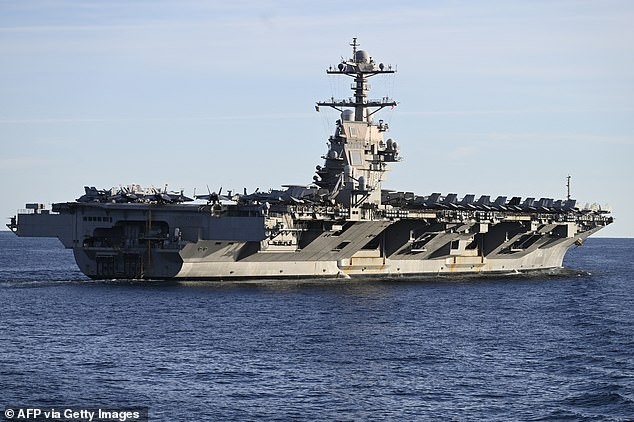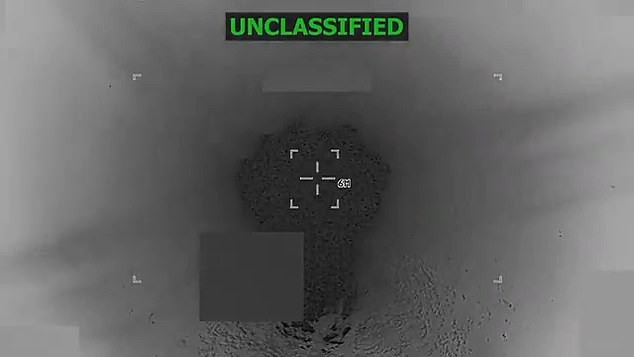20-Billion Warship Heads South: Trump Declares War on Narco-Terrorists and Reshapes the Caribbean Front
Paragraph 1: The USS Gerald R. Ford, a $20 billion behemoth 1,090 feet long, has been ordered to the Caribbean as part of a major escalation in the war on narco-terrorists tied to Venezuela. Paragraph 2: The carrier can carry more than 75 warplanes and arrives with a carrier strike group, signaling a dramatic display of American maritime power in the region. Paragraph 3: Officials say the mission is to disrupt narcotics trafficking and dismantle cartels, while President Trump has described the moment as a state of armed conflict, giving commanders sweeping latitude to pursue traffickers beyond U.S. waters.

In This Article:
A Carrier on the Move: Ford Joins Southern Command and Expands Naval Reach
Paragraph 1: The Ford arrives as a centerpiece of a carrier strike group that includes a cruiser, three destroyers, and nine aircraft squadrons, reinforcing U.S. capabilities in the Caribbean. Paragraph 2: Pentagon spokesperson Sean Parnell said the vessel will enhance and augment existing capabilities to disrupt narcotics trafficking and degrade and dismantle cartel networks. Paragraph 3: The Caribbean now hosts what officials describe as the largest American force deployed there since the Cold War, with nuclear submarines, F-35 fighters, MQ-9 Reaper drones, P-8 Poseidon reconnaissance planes, and B-52 bombers on patrol.

A State of Armed Conflict and a New Task Force
Paragraph 1: Trump has declared the United States is in a state of armed conflict with cartel forces, granting commanders sweeping latitude to pursue traffickers beyond U.S. waters. Paragraph 2: The Pentagon has established a new joint narcotics task force under U.S. Southern Command to coordinate operations, led by II Marine Expeditionary Force, a unit known for rapid overseas deployments. Paragraph 3: Since the start of September, the United States has conducted ten lethal strikes on drug-smuggling vessels, resulting in 43 fatalities among cartel operatives.

Ghost Ship and Night Stalkers: Covert Power in Plain Sight
Paragraph 1: Among the fleet is the MV Ocean Trader, a so-called 'ghost ship' that often sails without broadcasting its location. Its mission has not been disclosed. Paragraph 2: The Army’s 160th Special Operations Aviation Regiment, known as the Night Stalkers, provides precision air support for Green Berets, Navy SEALs, and Delta Force. Paragraph 3: Maduro’s regime, facing intensified U.S. pressure, has sought to depict the actions in stark terms as it trains and positions forces near Venezuela and its borders.

Legal Debates and Political Fallout: Critics See Overreach
Paragraph 1: Legal experts warn that the rationale for lethal actions at sea is complex and not fully disclosed; the administration has not released evidence, specific munitions details, or quantities of drugs allegedly seized. Paragraph 2: Some argue the law of war requires non-lethal means first and careful due process for lethal force, prompting questions about why strikes are carried out by the military instead of the Coast Guard. Paragraph 3: Politically, lawmakers worry about executive overreach as CIA operations in Venezuela surface, and Admiral Alvin Holsey’s surprise resignation from U.S. Southern Command intensifies concerns. The United States maintains roughly 10,000 troops in the Caribbean, the largest force there since the Cold War.


